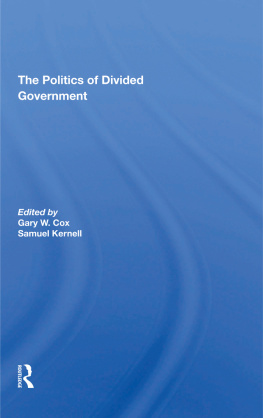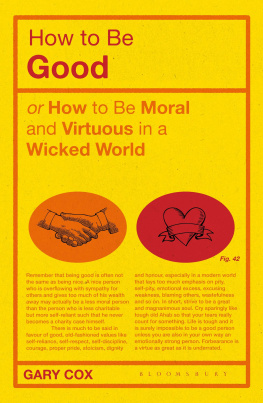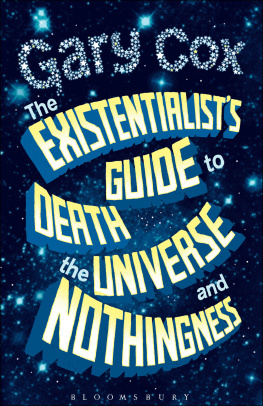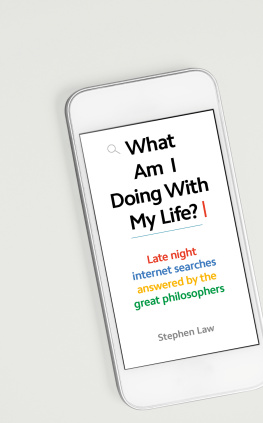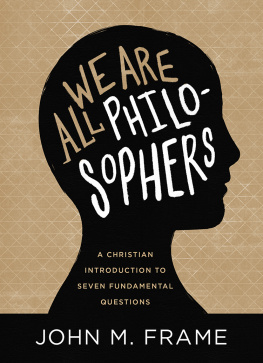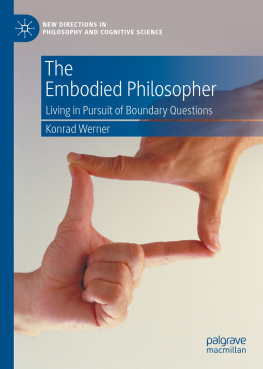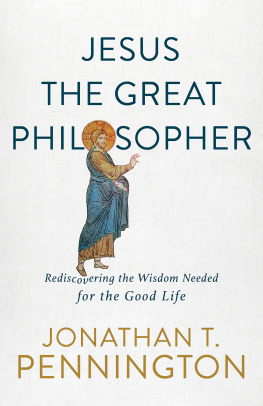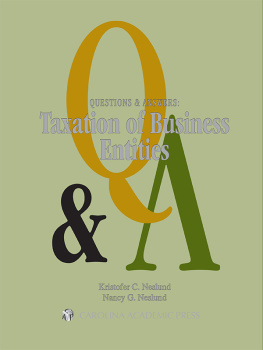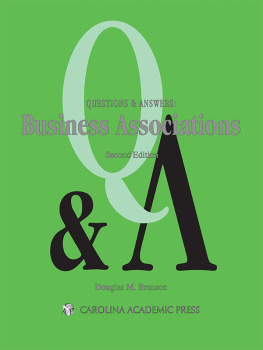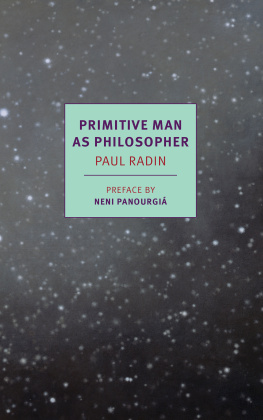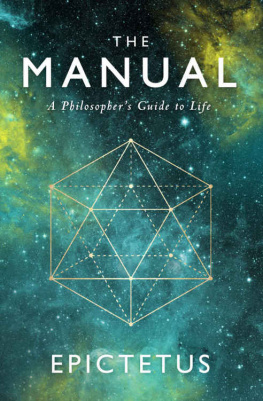HowtoBeaPhilosopher
By the Same Author:
How to Be an Existentialist Sartre: A Guide for the Perplexed Sartre and Fiction The Sartre Dictionary
Also available from Continuum:
The Good, the True and the Beautiful , Michael Boylan How to Make Good Decisions and Be Right All the Time , Iain King How to Win Every Argument , Madsen Pirie Sex and Philosophy , Edward Fullbrook and Kate Fullbrook
HowtoBeaPhilosopherorHowtoBeAlmostCertainthatAlmostNothingisCertain
Gary Cox
Continuum International Publishing Group

All rights reserved. No part of this publication may be reproduced or transmitted in any form or by any means, electronic or mechanical, including photocopying, recording, or any information storage or retrieval system, without prior permission in writing from the publishers.
British Library Cataloguing-in-Publication Data
A catalogue record for this book is available from the British Library.
ISBN: HB: 978-1-4411-4478-2
Library of Congress Cataloging-in-Publication Data
A catalog record for this book is available from the Library of Congress.
Typeset by Newgen Imaging Systems Pvt Ltd, Chennai, India Printed and bound in Great Britain by the MPG Books Group
For Mike
This page intentionally left blank
Contents
Introduction 1
1 What is Philosophy? 11 Philosophy and defining 12 Defining philosophy 13 Philosophy and cold, hard logic 18 Philosophy and free speech 24 The father of western philosophy 27 Metaphysics and more Plato 30 Epistemology and more Plato 33 The philosophy of doing the right thing 35 Summary 47
2 How to be a Philosopher Phase One: Doubting Everything 49 Philosophizing properly 50 Hallucination and optical illusion 53 Appearance and reality 56 Solipsism is there anything out there? 62 The father of modern philosophy 68 Descartes and the method of doubt 73 Descartes, I think therefore I am and God 79 Descartes collapse into solipsism 81 Dispelling these clouds 87
3 How to be a Philosopher Phase Two: The Tree Question 89 Family Guy in the forest 89
Ask a stupid question 91 Common sense realism 92 The Vienna Circle and no nonsense logical positivism 94 David Hume and no nonsense logical positivism 97 The verification principle 99 Sound is consciousness of sound 101 Kant and transcendental idealism 103 Sartre on differentiated and undifferentiated being 107 Inconclusive conclusions 109
4 How to Make a Living from Philosophy 112
BibliographyVisual, Musical and Internet Media ReferencesFurther ReadingIndex
Introduction
Why have you started reading this book? Philosophers should avoid guessing, but my guess is that you already know a few things about philosophy and you want to know more. Or, at the very least, you have come across the word philosophy before and you want to know what it means. Perhaps you already know a fair bit about philosophy having studied it at college or university or in prison but believe that knowing about philosophy and being a philosopher are very different things.
Philosophers, if I am one, should really avoid assuming anything, but on this occasion, instead of assuming that you, the reader, know something about philosophy, which you probably do, Im going to force myself to assume that you know absolutely nothing about philosophy. You have lived on this earth for however long, you are intelligent enough and have become educated enough to be able to read this book. More to the point, you want to read this book; a remarkable thing in itself in an age when ignorance is the new intelligence. Nonetheless, the meaning and significance of philosophy totally passed you by like the proverbial ship in the night. You have heard of psychology and sociology, even physiology, psychiatry and philately, but philosophy just got overlooked somehow, like a city youve never visited though you are well travelled, like a visitor who called at your door during the 5 short minutes you were in the shower.
Philosophy has a reputation for being complicated. Mostly this reputation is undeserved although it is true that it can get very, very complicated at the most advanced levels. Philosophy can get more complicated than anything else in life in fact. More complicated than relationships, more complicated than taxation, more complicated even than cricket. (As with cricket, many long, titanic struggles in philosophy end in draws.) Philosophy can get so complicated that it makes rocket science look like... well... not rocket science. Philosophy at an advanced level definitely is rocket science, although it has nothing whatsoever to do with designing vehicles that are capable of overcoming earths gravitational pull or landing tiny probes on Mars by remote control at a distance of 55400 million miles. Do not, however, be put off by all this talk of complexity. You will be relieved to know that being a philosopher, at least at a basic level, is actually incredibly simple. It really is, as this book will show.
Philosophy is a vast body of arguments, a great network of different points of view, a huge tangle of thorny issues that is still growing and expanding after thousands of years like unchecked brambles on a badly tended allotment. It would take many lifetimes to read all that has been written in philosophy, so not even the greatest philosophers know all the arguments. My point, however, is that to be a philosopher you dont actually have to know any of the arguments! Philosophy, as some great philosophers have said, is not so much a body of knowledge as an activity . So all you have to do to be a philosopher, at least at a basic level, is simply start doing philosophy; simply start philosophizing . Its a bit like playing tennis. You dont have to play tennis like Roger Federer or Rafael Nadal to be playing tennis. You are playing tennis, after a fashion, if you simply pick up a tennis racket and knock a couple of balls over the net, or even down into it.
It is almost certain that you have philosophized a fair amount in your life already without realizing it. In that case, you are already a philosopher without knowing it. If you have ever wondered where the universe comes from or if there is anything after you die, if you know anything for sure or if life is totally meaningless, if there is any good reason why you should be morally good or even bad or if beauty is simply in the eye of the beholder, then you were doing philosophy. The big irony for me is that Im writing this book to tell people how to become something they almost certainly are already! Im preaching to the converted, teaching my grandmother to suck eggs, taking coals to Newcastle and oil to Texas. So maybe the title of this book should be How to Tell When you are Doing Philosophy or, sounds a bit pretentious, How to Philosophize More Effectively .
The plain truth of the matter, without wanting to disrespect anyone, is that most of the very basic philosophizing that people do at the bus stop or in the pub or in their head while lying in bed unable to sleep has already been done far more thoroughly by someone who did nothing else but obsess over that particular speck of philosophizing for their entire, miserable life. So much so in some cases that they never had time to catch a bus or go to the pub or even sleep. I dare to say this as I have taught philosophy to hundreds of intelligent and not so intelligent beginners of all ages and rarely have any of them ever come up with an argument that someone, somewhere, sometime, didnt already write a whole book on or even a whole series of books.


